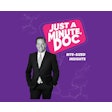
Navigating patient expectations, dental knowledge, and positions of power can be challenging. A new article published in the June edition of the Journal of the American Dental Association has explored managing the imbalance of knowledge and power between dentists and patients in decision-making.
In a dentist-patient relationship, the dentist has specialized knowledge that the patient lacks, and the patient seeks the dentist's help in making decisions related to their oral health. As such, the dentist-patient relationship must be grounded in the patient's trust that the dentist functions in the patient's best interests, according to study author Dr. Ben Balevi, a researcher at the University of British Columbia.
Patients may sometimes question a dentist's motives. Economists refer to this as the principal-agent problem, in which the dentist operates as the agent for the patient. The principal-agent problem refers to the knowledge differential between the patient and the dentist, thus creating an imbalance of power.
If the patient believes the dentist's priority is self-serving, there is a critical risk of mistrust toward the dentist's decision-making capabilities. If a dentist is to obtain all the rewards but face no consequences if the risks of a decision are acknowledged, a moral hazard exists, according to Balevi.
Balevi used the example of a patient with an unrestorable abscessed third molar without any opposing tooth for occlusion. While replacing the molar may not make the patient better off functionally or aesthetically, the dentist may recommend an implant because it is profitable for the practice. However, the patient incurs risks related to the surgery, including implant failure. This results in economically inefficient use of the patient's limited healthcare resources, Balevi wrote.
When a patient unknowingly follows through with a treatment that is of minimal benefit or is harmful, adverse selection occurs. The risk of adverse selection can be minimized by patients seeking second opinions from other oral health professionals or basing their decision on trustworthy information.
Dentists can minimize the risk of adverse selection by serving as consultants in the decision-making process. By guiding patients in balancing the likelihood of a desirable outcome against the cost and risks of treatment, dentists can offer better guidance and better outcomes.
Despite the abundance and accessibility of information today, studies have shown that patients still place great trust in their healthcare professionals. Patients expect that their providers are helping them make decisions that are based on the highest levels of scientific evidence that dental professionals have access to.
"Dentists must be conscious of their position of power over the patient to avoid taking advantage of it," Balevi concluded. "Specifically, care should be safe, evidence based, and respectful of the patient's personhood and should involve patients actively in all clinical decisions regarding their oral health care."



















